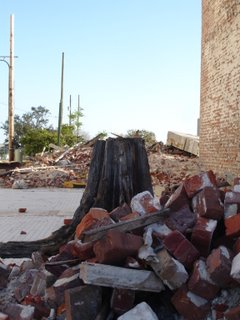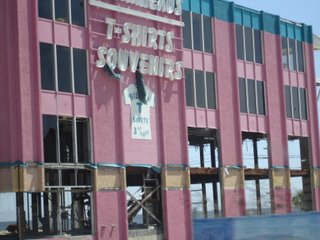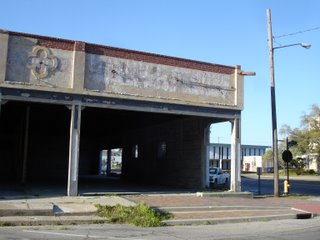Blog Editors
Recent Posts
20 March 2012 – Saint George Day 2: On Medicaid and Zion National Park
19 March 2012 – Saint George Day 1: Utah Legal Services at the Southern Utah Community Legal Center
18 March 2012 – To Saint George, Seven of Us Go!
17 March 2012 – HALO Departs for Spring Break 2012!
Archive
Good Stories
Posted By Finella Murphy, Mar 25, 2008
picking up the rubble, two and a half years later? Will Oakland and Berkeley be barren wastelands? Katrina was nature. Contractor fraud and formaldehyde poisoning – these tragedies are human in origin. While we can’t control nature, we can control the aftermath.
It is an incredibly desensitizing job. We have sifted through well over a hundred files – and each time we return a pile of cases, we are given even more. Boxes of files with names and ages and pain. So much so that each individual story is lost in the flood – and only the worst stand out. Stories of families vomiting blood from formaldehyde poisoning in their FEMA trailer. Unlicensed contractors robbing the elderly of every penny. Towards the end of the day, it is hard to focus –you almost begin to find humor in the absolute absurdity of it all. It’s a way of coping.
Even driving through town is unremarkable – the ruins all blend together. It’s 
There is an entire generation being left behind, in this state. How will the children of Mississippi grow up, seeing all they know washed away? How will they grow up, knowing that even years later, not much has improved? Please do not tell me I am sensationalizing. Truth be told, I am not. I spent a full work day sifting through files -- everyone here is suffering, and the poor, the minorities, and the disabled are all facing enormous hurdles to reconstructing their shattered lives.
Katrina is not the ultimate cause of many of the problems these people face – Katrina merely forced these problems out into the open, and amplified them, so that the poor are poorer. Treating the problems seen in the post-Katrina Gulf Coast will mean that we, as a society, need to address the deeper issues of poverty, poor education, government bureaucracy, racial discrimination, among other things – so that this will not happen again.
Even if the ongoing crisis of this disaster does not move you, then think of this – what will happen when the Hayward Fault goes? Will we be still
My group’s project may not allow me to give raw numbers about the sheer scale and injustice of the current situation in Mississippi – but, we have sifted through a broad scope of human suffering, to find the worst of the worst.
Katrina was terrible, but










